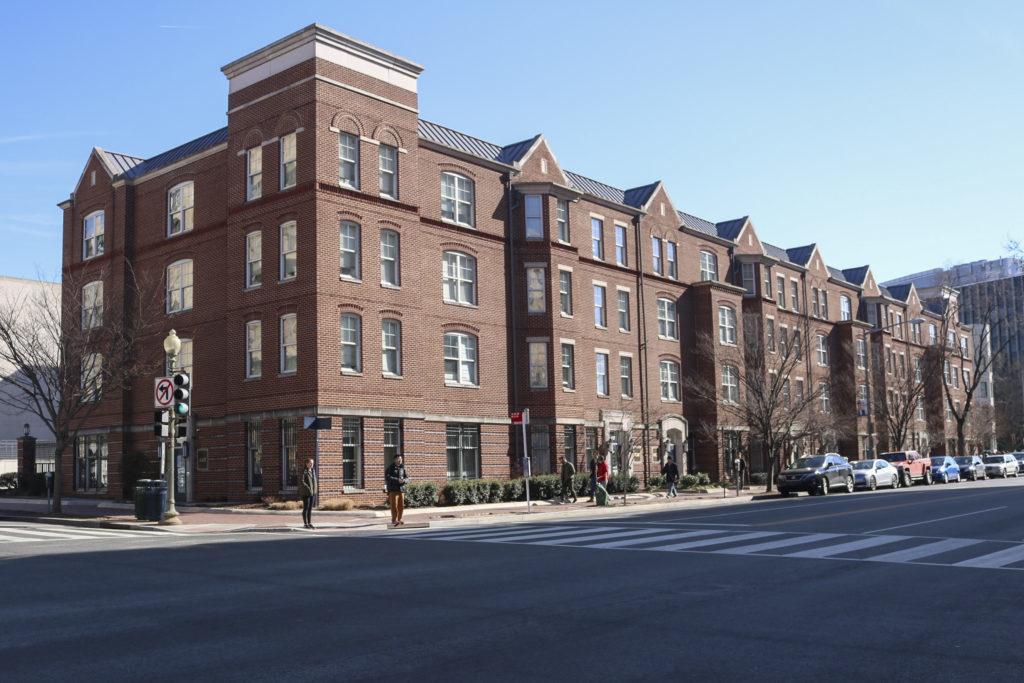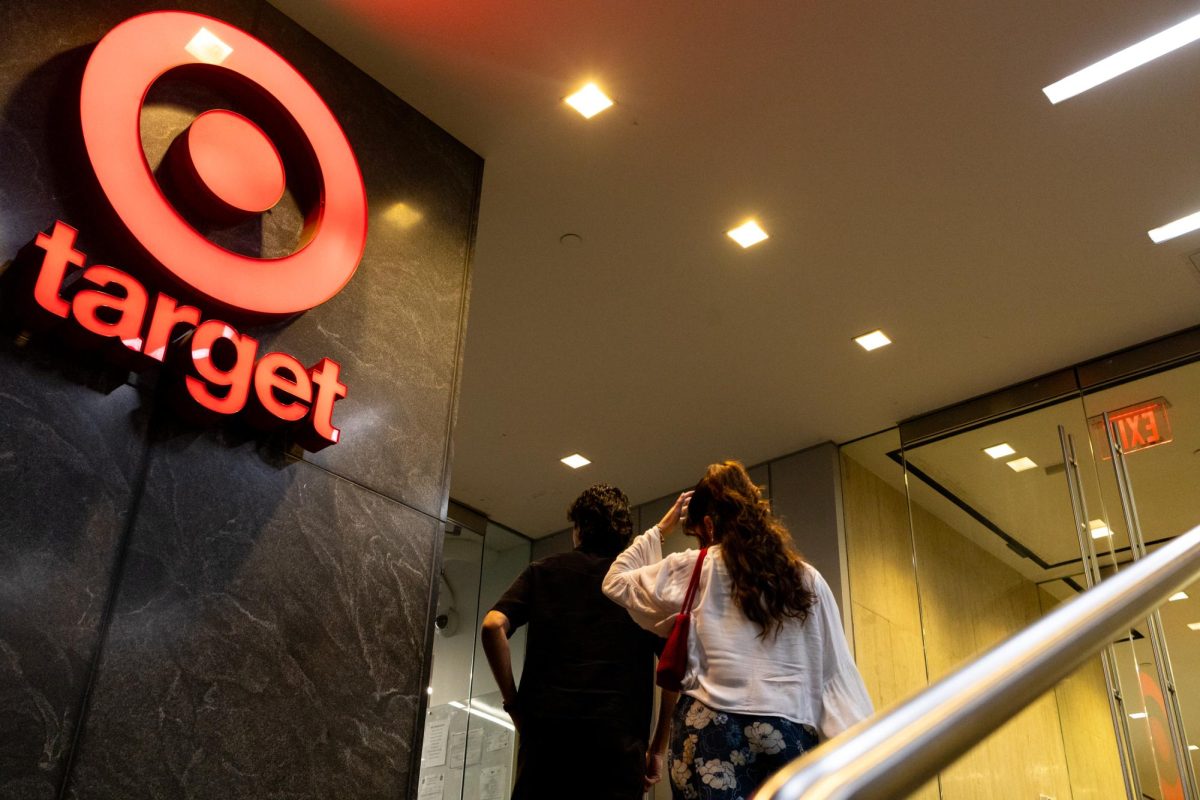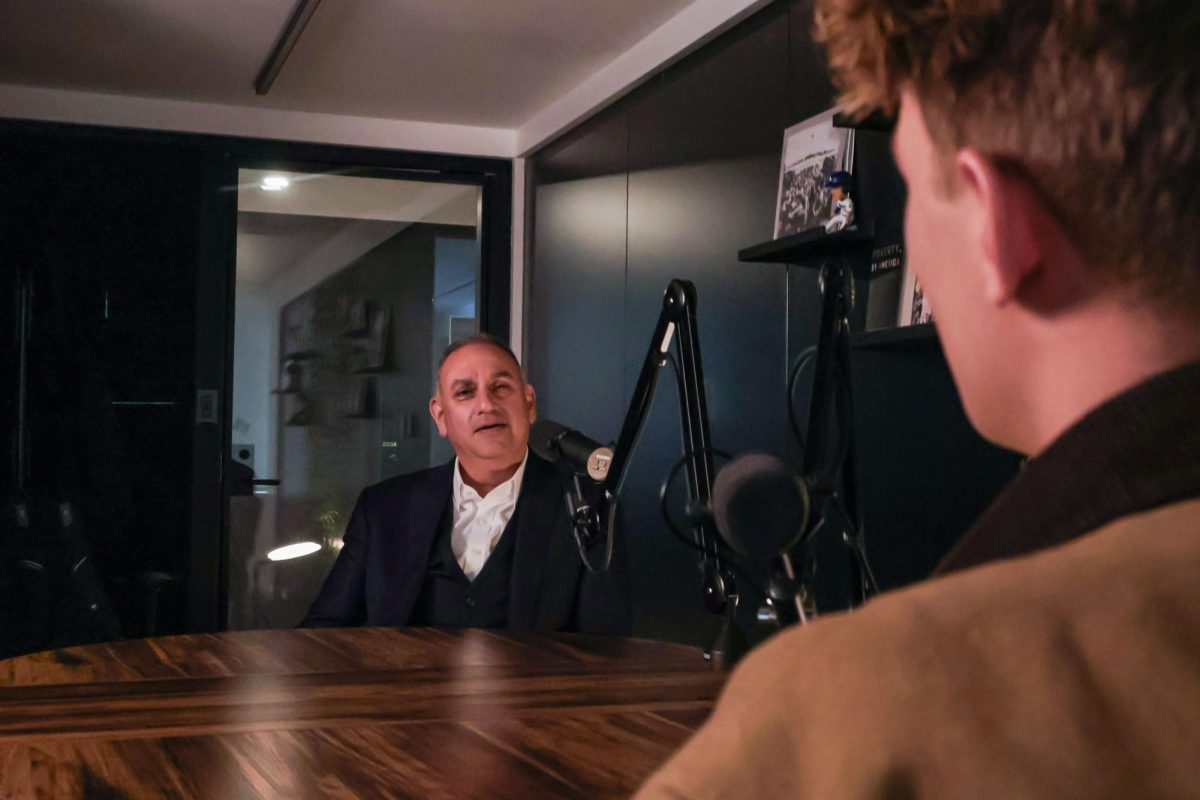Formal fraternity recruitment surged from last spring to this semester, edging closer to pre-pandemic participation levels.
Brian Joyce, the assistant dean of student life, said 156 students participated in recruitment activities this semester. This is an uptick from 130 participants in spring 2022 but still lower than 190 from the last round of in-person fraternity rush before the pandemic in spring 2020. Formal fraternity recruitment plummeted last semester when officials reinstated a policy requiring freshmen to complete 12 credits before rushing, dropping from 121 accepted bids in fall 2021 to just 22 a year later.
Joyce said nine Interfraternity Council chapters distributed 128 bids during spring recruitment, a 482 percent jump from last fall when 22 students earned bids. He said 116 students accepted bids this spring, a dip below the total of 121 students from fall 2021.
Joyce said the IFC extended the deadline to Jan. 28 for spring rush registration after “multiple” students reached out expressing interest in registration after the deadline passed.
“The council leadership, in consultation with their staff advisor, extended the registration deadline to allow for additional students to register and hopefully provide more interested students with the opportunity to participate in the process,” Joyce said in an email.
Joyce said the number of new members among chapters ranged from one to 22, but he declined to share the figures for each chapter “out of respect” and to maintain privacy.
IFC President Jack Palaian said more freshmen participated in recruitment this spring than last semester when officials reinstated the requirement for students to complete 12 credit hours before rushing. He said IFC dropped the 12-credit requirement during the first semester of in-person recruitment since the start of the pandemic so chapters’ engagement and membership could rebound from its year-and-a-half virtual hiatus.
“Our chapters were suffering in terms of numbers and actually being functioning organizations,” he said. “And so allowing freshmen to recruit in the spring, we saw a large increase in numbers.”
Palaian said IFC hosted the first Open Night, a recruitment event for students to meet the fraternity chapters, in the University Student Center late last month instead of in fraternities’ respective campus houses to consolidate and organize the meetings. He said the chapters returned to their houses for the second open rush night.
“The goal of all that was to allow them to make a more informed decision on the chapter they’re joining, about their values and the people they met and the conversations they had,” Palaian said.
Palaian said the most common reason for students not receiving bids this semester was a failure to meet chapter GPA requirements, which typically set a minimum 2.8 GPA. He said the eight-week process for onboarding new members, also known as “pledging,” could be overwhelming for a student who is already struggling to maintain high grades.
“Our eight-week new member processes are a lot but they’re rewarding,” he said. “So we see that sometimes if you already don’t have good grades, then it might be tough to make it through that process without lowering them.”
Palaian said an alumni representative for the national organization of the Jewish fraternity Alpha Epsilon Pi, which currently has no registered members at GW, is currently in the process of recruiting students to start a chapter at the University. He said they are in search of a student to fill the role of the “founding father,” or the founder of a new chapter on campus.
“Founding fathers’ organizations typically take on a much larger role,” he said. “And so AEPi currently doesn’t have a founding father, but they’re working to get that.”
Phi Gamma Delta President John Attwood said IFC’s decision to host the first open night in the student center promoted more “equity” in the rush process, particularly for Phi Gamma Delta, or FIJI – the newest IFC chapter and the only one without a fraternity house on campus. He said FIJI participated in the second open night at the student center while other chapters used their houses.
He said IFC should apply more effort to help smaller chapters grow in future recruitment periods.
“It’s very hard for small fraternities to grow on campus because the culture is a bit difficult for new fraternities,” he said. “I would say they did a really good job with it this recruitment season, but I think there could be some improvements.”
Kappa Sigma President Luke Sadowski said his chapter is “happy” with the 20 new members they recruited during formal recruitment. He said he appreciated the streamlined process for potential new members to meet chapters in the student center this year at open night.
“I think it gives every PNM the ability to see every chapter,” Sadowski said. “And it gives them the ability to kind of give them more choice.”
Sadowski said he would support continuing the same recruitment format during future rounds of recruitment.
“Honestly, the way it was done this year, I would say to keep it the same,” he said.








